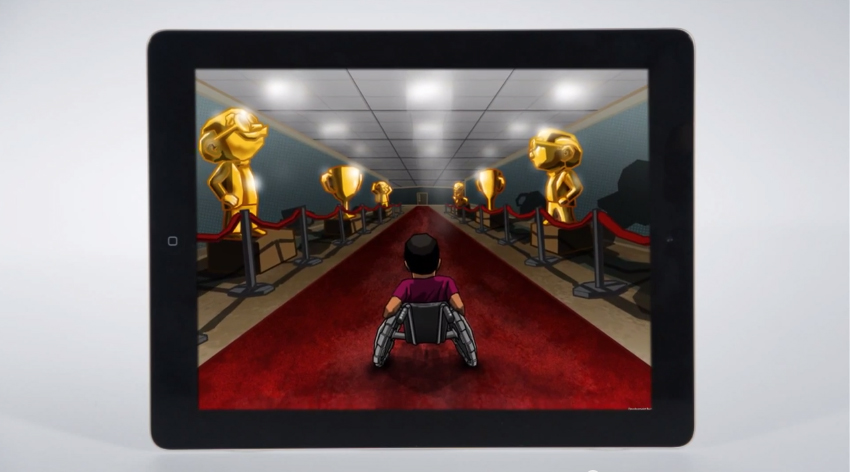It’s no secret that we love video games, especially when they are used to improve the quality of life of people living with disabilities. That’s why we were extra excited to learn about a new program at the University of Michigan aimed at developing technology-based approaches to improve health of teens and young adults with cognitive, physical, and neuro-developmental disabilities.
Through a $4.5 million federal grant, the University will develop apps for smart phones, tablets, cloud devices, and even video game consoles. However, these games will be more than just catapulting angry birds at pigs in army helmets or crushing candy; using artificial intelligence and cognitive science, these games are designed to help adolescents develop skills ranging from emptying bladders through a catheter, to self-administration of medication, to managing stressful social situations and being motivated to pursue personal life goals.
One of the earliest forms of this new technology is SCI HARD, a downloadable app for mobile gaming devices that can be played by using a touch screen or even a mouth stick. The game begins when the player wakes up in rehab, learning they have a spinal cord injury. From there, the player completes a number of daily activities, from going to the doctor’s office or therapy to build muscle, to learning to drive an accessible car and renewing prescriptions. More challenges in the game include hosting an unexpected party, managing rowdy club goers during a night out with friends, and defeating an evil impostor psychologist named Dr. Schrync.
In the game, players must learn how to get information they need in order to progress, how to interact with other people, and eventually save the world. This game and others that the University of Michigan is developing could help young adults with neurodevelopmental disabilities or spinal cord dysfunction to improve their health and to become more independent. In fact, a clinical trial will begin in 2014 to test just that.
Below is a video that shows the features of the SCI Hard app. We want to hear from you – would you try it? Think it would be beneficial for adolescents adapting to SCI?









